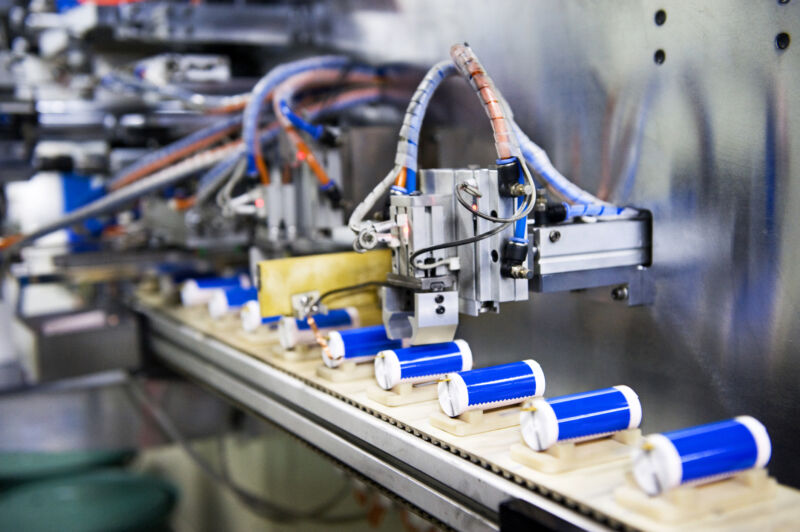On Monday, the US Department of Energy announced that it was releasing over $3 billion in funds to stimulate the production of batteries within the country. The funding is divided into two chunks, one intended to spur the processing of battery materials and manufacturing demos and the second for stimulating the reuse and recycling of electric vehicle batteries.
Shortly after taking office, President Joe Biden's administration started a review of the lithium battery industry in the US. The result was a "National Blueprint" that set out a series of priorities for stimulating domestic production and use.
These include:
- Developing domestic sources of raw materials and researching alternative materials for things where domestic supplies aren't available
- Developing a processing capacity capable of converting these minerals into battery materials
- Stimulating a US-based battery manufacturing industry
- Handling the end-of-life of batteries used in the US, including advanced recycling
- Promoting the education and R&D needed to maintain competitiveness
The recent infrastructure spending law includes $7 billion for improving the domestic battery supply chain, so the new funding announcement represents a substantial portion of that spending. It specifically focuses on three of the above priorities: materials processing, battery manufacturing, and end of life. The latter will largely focus on recycling but will include some money set aside for stimulating a "second life" for batteries that are no longer viable for vehicle use. This has typically meant that they'd be put to use providing grid-scale electrical storage.
The US is already home to some significant battery manufacturing, largely to supply the growing electric vehicle market. In general, however, this has relied on materials brought in from overseas. The new funding appears to be an attempt to limit that industry's reliance on overseas supply chains for the materials used in manufacturing and to lay the ground work for handling the eventual surge of batteries that reach their end-of-life point.



3175x175(CURRENT).thumb.jpg.b05acc060982b36f5891ba728e6d953c.jpg)

Recommended Comments
There are no comments to display.
Join the conversation
You can post now and register later. If you have an account, sign in now to post with your account.
Note: Your post will require moderator approval before it will be visible.